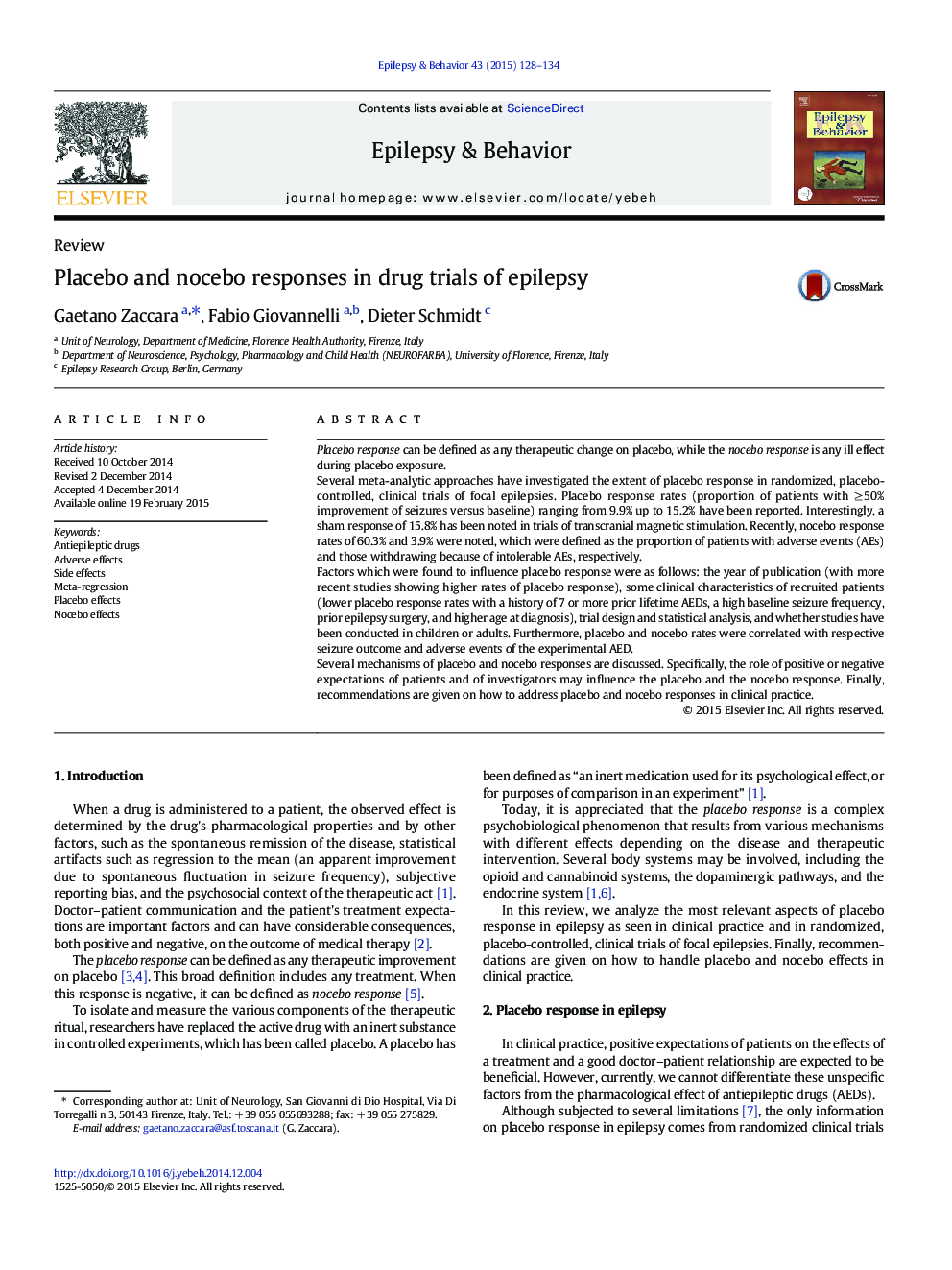| کد مقاله | کد نشریه | سال انتشار | مقاله انگلیسی | نسخه تمام متن |
|---|---|---|---|---|
| 6011450 | 1579846 | 2015 | 7 صفحه PDF | دانلود رایگان |

- We analyzed the placebo and nocebo responses in epilepsy clinical practice and trials.
- Mechanisms of placebo and nocebo responses in epilepsy were hypothesized.
- Suggestions for future research are given.
- Recommendations are given to address placebo and nocebo responses in clinical practice.
Placebo response can be defined as any therapeutic change on placebo, while the nocebo response is any ill effect during placebo exposure.Several meta-analytic approaches have investigated the extent of placebo response in randomized, placebo-controlled, clinical trials of focal epilepsies. Placebo response rates (proportion of patients with â¥Â 50% improvement of seizures versus baseline) ranging from 9.9% up to 15.2% have been reported. Interestingly, a sham response of 15.8% has been noted in trials of transcranial magnetic stimulation. Recently, nocebo response rates of 60.3% and 3.9% were noted, which were defined as the proportion of patients with adverse events (AEs) and those withdrawing because of intolerable AEs, respectively.Factors which were found to influence placebo response were as follows: the year of publication (with more recent studies showing higher rates of placebo response), some clinical characteristics of recruited patients (lower placebo response rates with a history of 7 or more prior lifetime AEDs, a high baseline seizure frequency, prior epilepsy surgery, and higher age at diagnosis), trial design and statistical analysis, and whether studies have been conducted in children or adults. Furthermore, placebo and nocebo rates were correlated with respective seizure outcome and adverse events of the experimental AED.Several mechanisms of placebo and nocebo responses are discussed. Specifically, the role of positive or negative expectations of patients and of investigators may influence the placebo and the nocebo response. Finally, recommendations are given on how to address placebo and nocebo responses in clinical practice.
Journal: Epilepsy & Behavior - Volume 43, February 2015, Pages 128-134